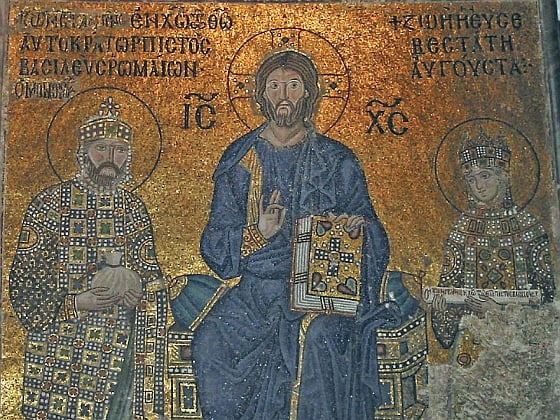
That is no country for old men. The young
In one another’s arms, birds in the trees
– Those dying generations – at their song,
The salmon-falls, the mackerel-crowded seas,
Fish, flesh, or fowl, commend all summer long
Whatever is begotten, born, and dies.
Caught in that sensual music all neglect
Monuments of unageing intellect.
—William Butler Yeats, Sailing to Byzantium first published in The Tower (1927) in: The Collected Works of W.B. Yeats vol. 1, pp. 197-98 (R. Finneran ed. 1983)
Is this yet a country for old men? As Republicans gather in the Twin Cities, prepared to nominate their oldest first candidate for president ever, 72-year-old John McCain, that’s a question hovering in the background. A question of poetical introspection turned into Realpolitik. Indeed, the desire to avoid or negate this question may underlie the surprising decision to pick 44-year-old Sarah Palin as his running mate.
But the plight of being an old man in a country that values youth is just one of the many strands of this complex, sentimental yet transcendant poem by Yeats, surely one of his truly great efforts.
Examined alone from the perspective of geography, this work is a marvel. It describes a voyage to Constantinople, or does it? The salmon-falls and mackrel-crowded seas surely speak of an island between Britain and the North Atlantic, and not the calm and turquoise waters of the Bosphorus and Aegean. Can we doubt where this voyage begins? But it begins with a recognition of the frailty of human existence–“an aged man is but a paltry thing,” the poet writes, a “tattered coat upon a stick.” Yes, the voyage begins in Ireland, but it is more precise to say that it begins at an age, a point of consciousness of human decay, of proximity to death.
This voyage is a journey in time at least as much as space. It is a voyage backwards, a search for a golden age whose memory radiates like those gold-coated mosaic stones. Byzantium is the perfect image not least because it is a lost culture. It ceased to be before the dawn of the sixteenth century. It was supplanted by something alien–in the hysterical cries of its last leaders, by the onslaught of murderous barbarians. With its fall, a culture was extinguished. Or was it in fact? Byzantium was lost, but it remained a vision, a beacon for civilizations in the East and West. A new Byzantium was born, a city in the realm of ideas.
Does Yeats seek out the traces of this lost culture? They are woven through the poem, but they surely are not his ultimate object. Is it not instead the “artifice of eternity”? Typical of Yeats, the images here are Christian, and the words themselves suggest a theology of sorts. But it seems that Yeats’s meaning must lie elsewhere, in the quest for a homeland for old men. The voyage that Yeats has undertaken surely is an internal one, a search for resolution at the end of a life devoted to art. Was this a life well spent? And will his labors provide guidance, sustenance, meaning to those who follow in his wake? Is this not also the ultimate question put by the muted voices of those lords and ladies of Byzantium, the question of what is past, or passing, or to come?



